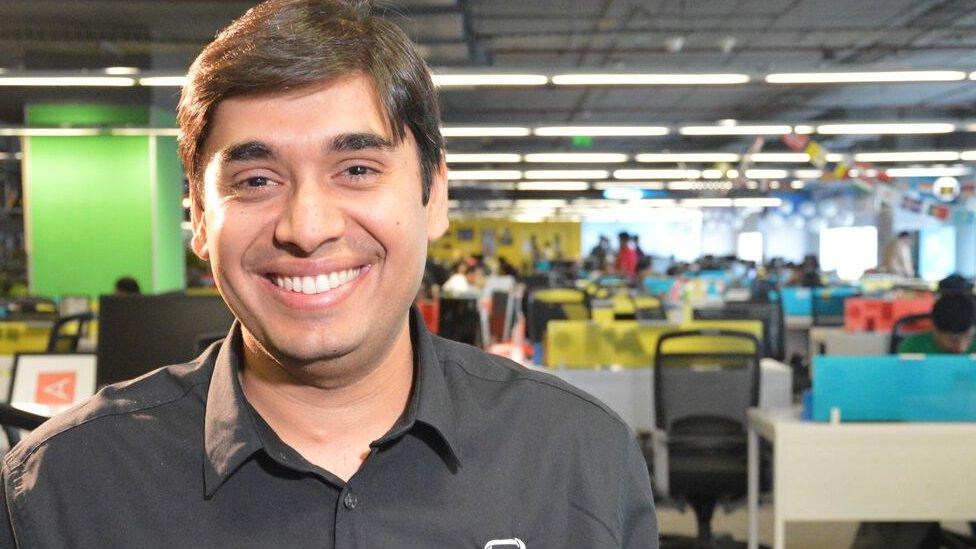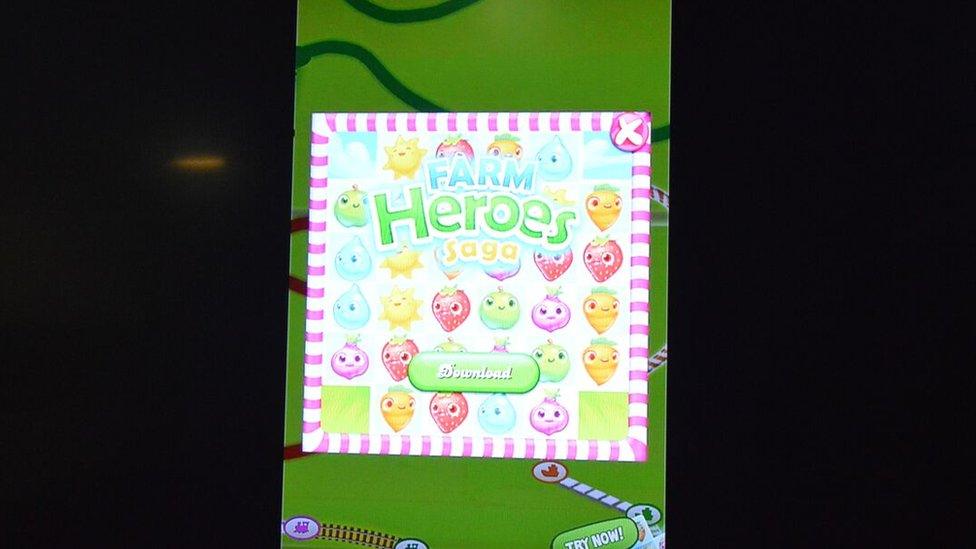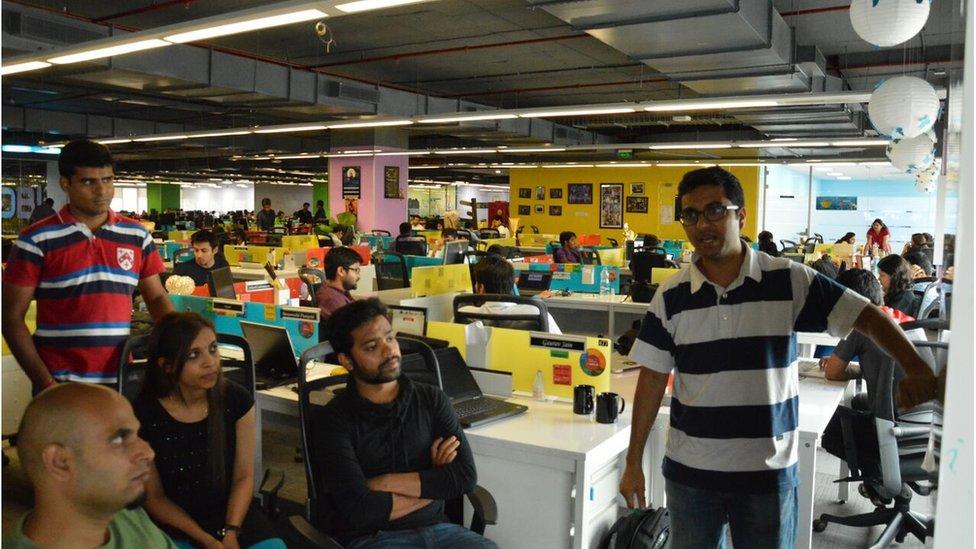India's global ad giant taking on Google and Facebook
- Published
How Naveen Tewari created a global advertising giant from Bangalore.
"I am a very proud Indian and I want to see our country succeed," says Naveen Tewari, chief executive of mobile advertising giant InMobi.
"I thought if I could do something from here that can be successful, maybe I'll have a small role in creating great companies out of India that can compete with the iconic companies in Silicon Valley."
It's fair to say that eight years after starting the company with three co-graduates from the prestigious Indian Institute of Technology, Kanpur, Mr Tewari has done just that.
Today InMobi, based in Bangalore, India, is the third largest player in the fast-growing mobile advertising industry, with only Facebook and Google outstripping it.
The company has 24 offices in 17 countries and employs more than 900 people. Last year it posted 720 billion mobile adverts on the phones of more than a billion users.
In just a few years he hopes they will send adverts to 2.5 billion people every day.

Naveen Tewari's family hoped he would pursue a career in academia
''That level of ability for us to touch so many lives and impact their decision-making is a huge responsibility," says Mr Newari.
"I want to ensure we deliver value to them.''
Smartphone revolution
The advertising giant has grown quickly because of the fast proliferation of smartphones and tablets across the world.
"InMobi creates audience networks for advertisers to reach through mobile devices," explains Ian Maude, the director of digital media at Enders Analysis.

InMobi places adverts on smartphone content apps such as games
"These companies sign up digital publishers, like app makers, so they can access their audiences, package them up and sell them on to advertisers."
India is the world's third-largest smartphone market and many users are upgrading to smartphones for the first time from basic handsets.
Chinese mobile companies, like Xiaomi, OnePlus and Coolpad, are now investing in India, providing competition for home-grown brands, such as Micromax and Karbonn, as well as for global giants Samsung and Apple.
''InMobi is directly relevant to what is happening in India at a macro point of view because of its distribution and ability to access people on mobile devices, which people in India are adopting very quickly," says Eileen Burbidge, who invests in technology companies for Passion Capital.
Global gamble
It has not been a clear road to global success for Mr Tewari and co-founders Abhay Singhal, Amit Gupta and Mohit Saxena.
The company was originally called mKhoj and offered a search engine that worked via text message.
In 2009, with mKhoj failing to take off, they rebranded as InMobi, funding the new business with credit card debt.
The gamble quickly paid off - that year InMobi became the largest mobile ad network in South Africa and opened offices in Europe, expanding to North America the following year.

InMobi has 24 offices around the world but is headquartered in Bangalore
"People asked us why are you building this as a global business when there is no past success like this," Mr Tewari says.
"But we said we think we can make it happen; we have a great product and there is a market for it. Logic suggested that if we looked at the past we shouldn't go for it, but my gut suggested that we should. We went for it and we are successful.
''You have to make decisions with 10% of the available information. If you had 100% information then decision-making would be very easy," he adds.
Tech ambition
Mr Tewari says the turning point in his career was when he got to work with a venture capital firm in Silicon Valley during his summer breaks from his MBA [Master of Business Administration] at Harvard Business School.
''It was my first introduction to the world of start-ups and I learnt that I could make a difference, define the vision and actually make things happen.''
His chosen career path was a disappointment to some of his more academic family members.
''Everyone was disappointed when I did not go down the path of doing a PhD and taking up something with potential at the Indian Institutes of Technology.
"Now what I do is very different and it's a big change,'' he says.

The Digital Disruptors is a series about the people and companies shaking up business with new technology.
